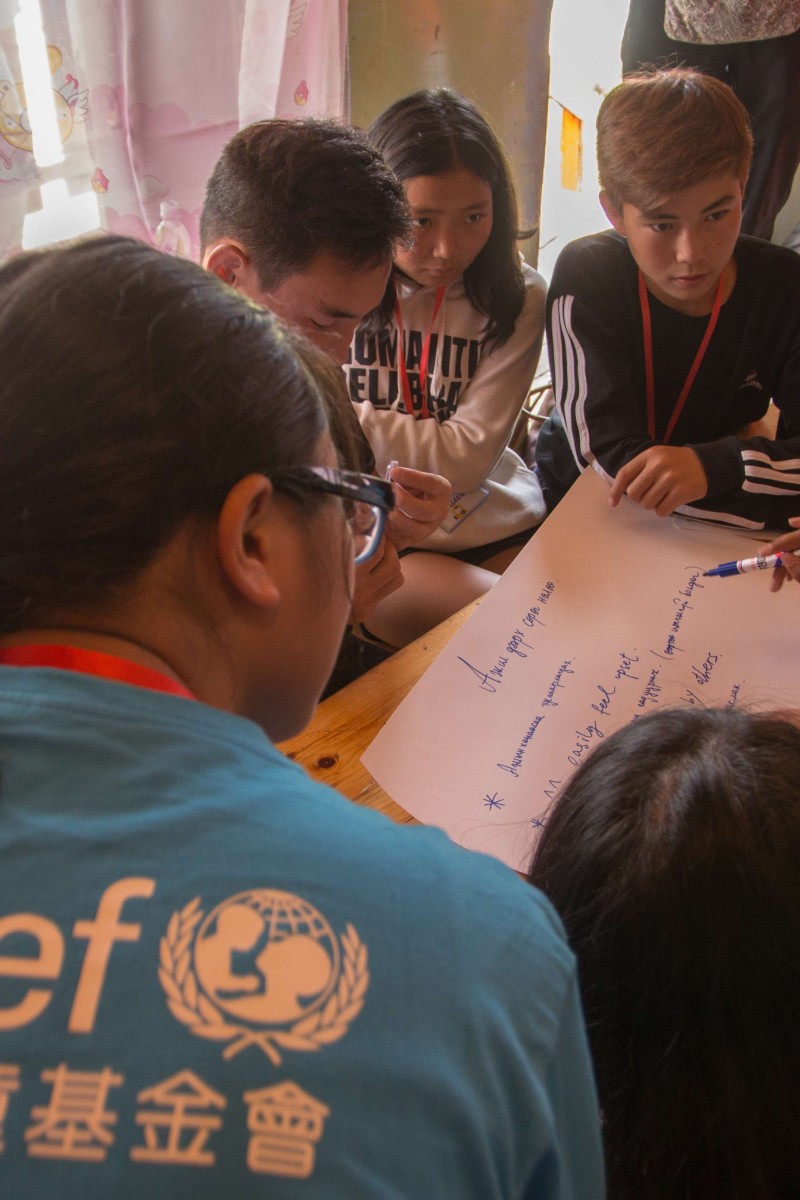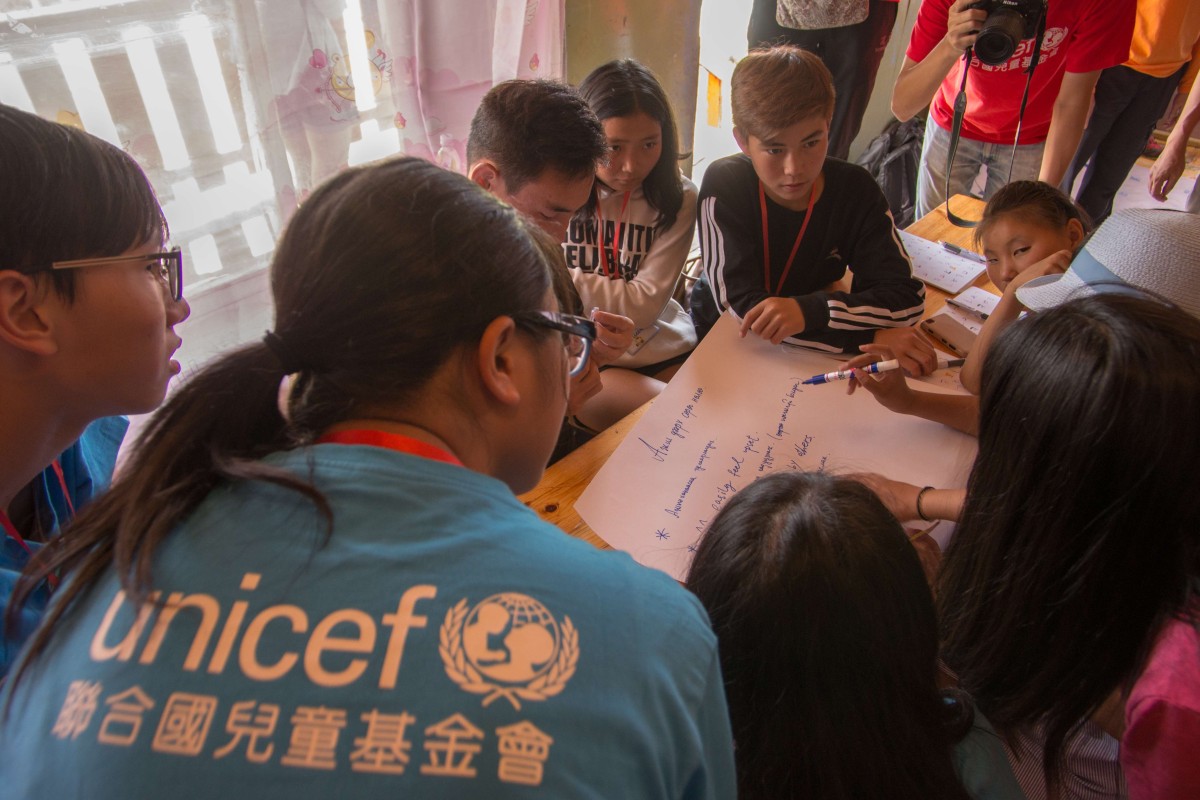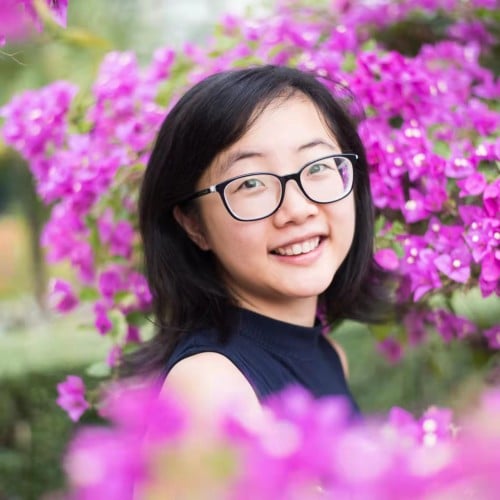
24 Unicef Hong Kong’s Young Envoys learns about ‘big family’ values in Mongolia
The centre is home – and family – to 150 children who have been abandoned or orphaned
 The Young Envoys from Hong Kong take part in one of the many interesting activities they did with the students at the Unur Bul Centre, in Mongolia’s capital city, Ulaanbaatar.
The Young Envoys from Hong Kong take part in one of the many interesting activities they did with the students at the Unur Bul Centre, in Mongolia’s capital city, Ulaanbaatar. Andy Wong Ho-chi made a new friend last month. He goes by the name “Hangai”, and “he invited me to wrestle and I was flattened in a minute,” said the Form Four student from La Salle College. “His English is quite good, so we chatted and played football together, he introduced me to his friends and they even like dancing to K-pop!”
They met in Mongolia, when Andy and 23 other Hong Kong students took part in Unicef Hong Kong’s Young Envoys programme.
As part of their five-day trip to Mongolia, the Young Envoys went to the capital Ulaanbaatar, where they learned about projects Unicef Mongolia has been working on. One local group they’ve been working with is the Unur Bul Centre. (Unur bul means “big family” in Mongolian.)
The centre, established in 1974 and supported by the National Authority for Children, is home to 150 orphans, abandoned, homeless or street children, children with mental disorders, or whose parents are deprived of parental rights.
Andy’s new friend has been living at the centre for more than a decade, ever since he and his twin brother were abandoned by their family at the age of six.
“I felt very strange when I came here for the first day, it was hard to adjust to a new and very different environment ... it took me two years to feel at home,” he told Young Post.
To make matters even more difficult for him, on their way to the centre his twin brother went missing, and has not been heard from since.
Eleven years later, Hangai has a new life in the centre. He goes to school like the other children, plays sports with his friends, and joins talent shows. In the summer, he spends three months in the centre’s Kharaatsai summer camp, where international volunteers visit and help out. Hangai likes to talk to them: “English has become my favourite language,” he says. “I want to be a translator.”
One day last year, when he came back from school, staff at the centre told him his mother was there. Hangai thought they were joking, but in a meeting room, he saw his mother, two older brothers and one older sister. As you can imagine, it was a complicated experience for him.
“[Finding out I have a family] after all these years of being alone ... the feelings of gratitude and sadness were all mixed up.”
He still hopes to find his missing twin, and that’s one of the reasons why Hangai, now 17, will take part in the local reality show Power of Love. On the show he’ll sing the song I Was Born for a Reason, with Bold Dorjsuren, one of Mongolia’s biggest pop stars, as his mentor.
The children at the centre have almost everything provided by the government – from education to clothes and food – but that doesn’t mean they know only to take but not to give.
Last winter was a harsh one even for Mongolia, as temperatures dropped to minus 50 degrees Celsius. To help local families overcome the difficulties, the children held a concert for them, and they made small blankets from their old clothes to keep calves and sheep warm.
Once the students turn 18 and finish secondary school, they leave the centre. So to help prepare them for the real world, Unicef Mongolia and Unur Bul run a life skills programme together.
“For children living in a big group, independent living skills are very important,” says Baldorj Burmaa, director of the centre. “And to live independently, the first thing one you have to know is how to make food for yourself.”
Children are split into groups of five, and given their own mini kitchens, so they can budget, shop, and cook for themselves. This type of education provides the children with more than just food.
“In the programme, children learn how to get information, how to adopt a more positive attitude towards life, how to socialise with others, and how to work in a team,” says Burmaa.
This is very important for people such as 19-year-old Baaska (a nickname), who was abandoned as an infant.
“I knew I had to study [hard] because once I left the orphanage, there wouldn’t be anyone to help me,” she says.
As Baaska’s time at the centre was finished, she spent last year doing a language course in China. After achieving Level 5 of the Chinese Proficiency Test, she earned a full scholarship for an undergraduate programme in accounting in Hohai University in Nanjing.
“The centre paid for my first year in China, which opened a big door towards my goal, which is to open an orphanage,” says Baaska. “I started living in orphanage when I was little, so I know what the children are facing and I know how to help them out. I want to be the best mum they can have.”
Dennis Leung Hoi-chun, a Form Five student in TWGHs Kap Yan Directors’ College, was impressed by Baaska’s chipper attitude and her determination. “I saw that in many of the children at the summer camp,” said Dennis. “I think that attitude is the key to changing their destiny, and it touched me deeply .”
Want to get involved?
Unicef Hong Kong is now taking applications for next year’s Young Envoys. If you are between 12 and 18 years old and a full-time secondary school student, go to Unicef to find out how to take part. Application deadline is November 1, 2016.
